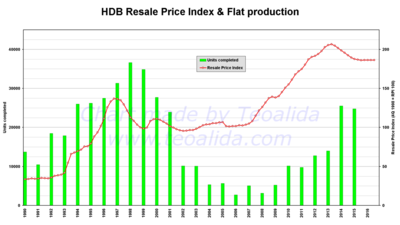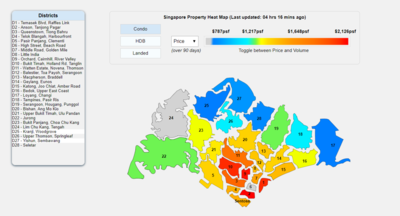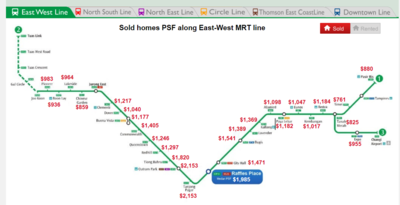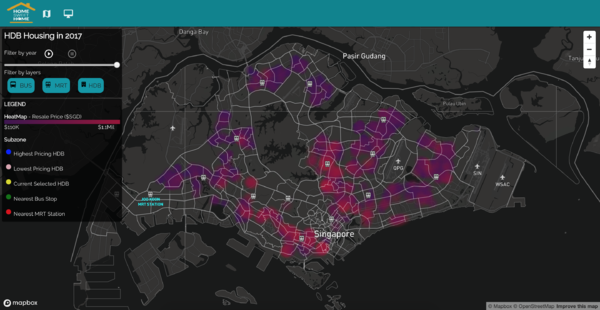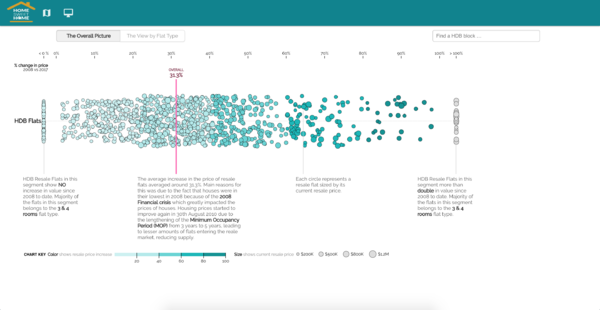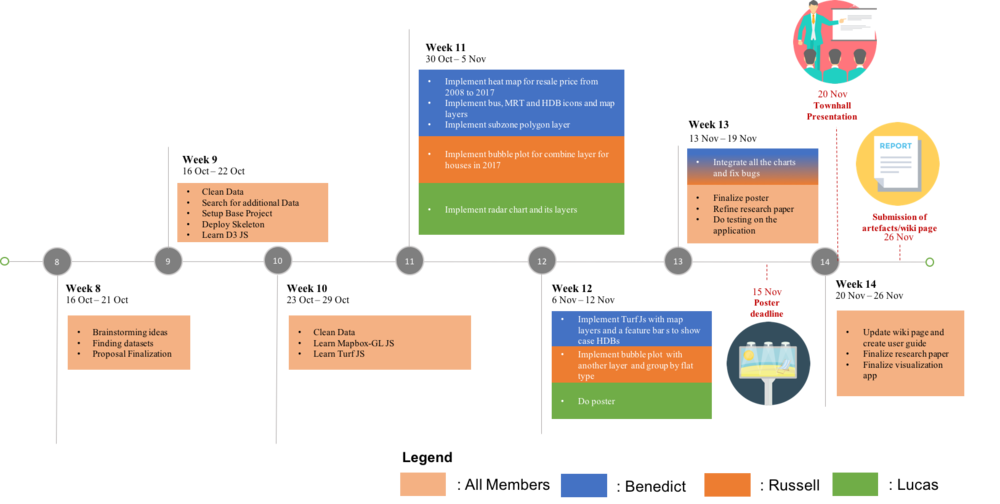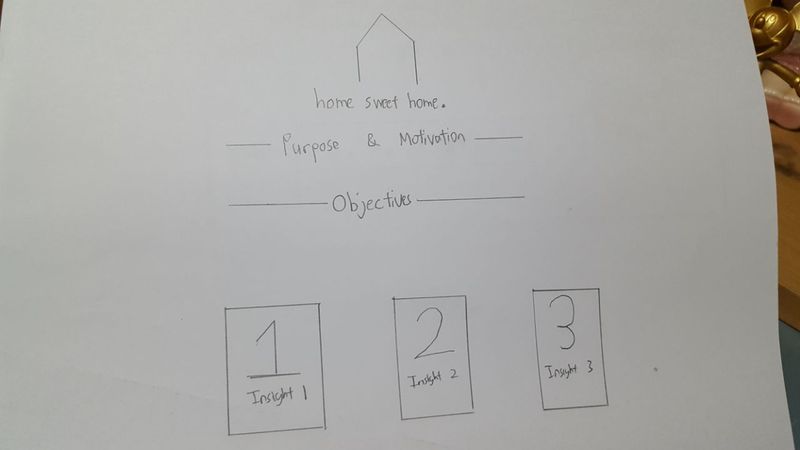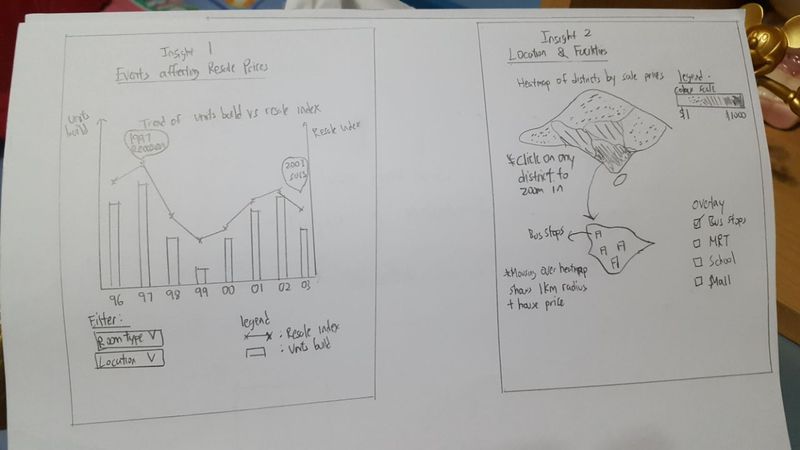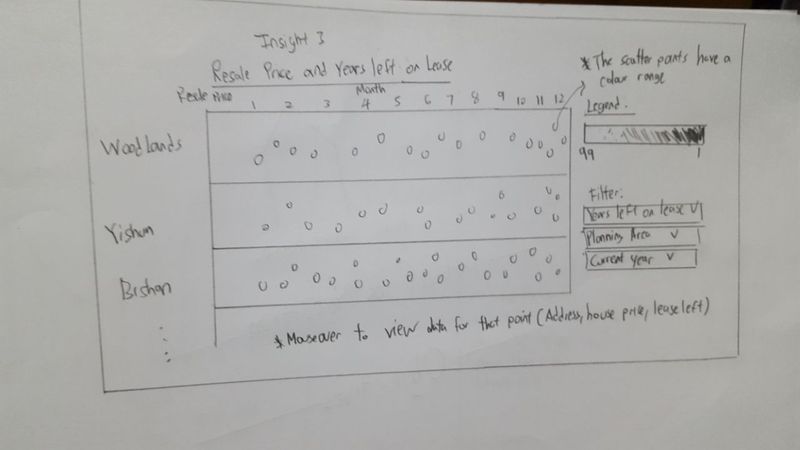IS428 2017 18T1 Group02 Proposal
With housing prices being a hot topic that most undergraduates are talking about as we approach that final period called graduation, don't you wish that there was a way for us to get a better picture of the housing market so that we can make our big decision on where we are going to live from now on? Thus, we sought out to look for a dataset which would be able to provide us with the required information we needed to come up with useful visualizations. Unfortunately, most datasets are incomplete or not useful in providing us with any insight unless a good amount of data cleaning and wrangling is done. For example, transaction data which only gives you the block number and road name with no postal code. How is that useful? Therefore, one of our primary goals is to come up with a visualization which would provide users with useful information about the resale market in Singapore and help people gain access to a better data set than the ones currently out there. On top of that, we want to create an easy-to-use visualization tool that can help people analyze the historical flat data so that users can see which flats in Singapore would be the most value for money so that users can actually buy a home which is worth its investment. We also felt that it would be interesting to explore the patterns in the resale flat prices and see what factors really affect the prices of HDBs and find out how much of a premium people attach to amenities such as proximity to public transport, age of the lease, schools and etc...
In this project, we are interested to create a visualisation that helps users perform the following:
- View the trend in the resale prices over time with respect to major events that happened in the year (Example: 1993 Change in Pricing Model,1997 Recession
- Identify which areas are more expensive and possible reasons for the high value (Proximity to public transport, Schools, Shopping Malls, Park)
- To find out if getting a specific HDB is a good investment based on the number of year left on the lease and which locations may potentially be more profitable based on the age of the HDB.
By using our visualisation, we will be able to give users a better idea of the pricing situation of the resale HDBs so that people can make better decisions in the HDB which they want to choose to call their home. Such as when is the best time to buy as HDB; where are the most profitable / cheapest locations; whether a HDB is expensive
In our analysis, we will only be using data within the year of 1990 - 2017. The rationale for the range of data selected is as follows:
The dataset for analysis will be retrieved from multiple databases, as elaborated below:
| Dataset/Source | Data Attributes | Rationale Of Usage |
|---|---|---|
(https://data.gov.sg/dataset/resale-flat-prices?resource_id=83b2fc37-ce8c-4df4-968b-370fd818138b ) (https://data.gov.sg/dataset/resale-flat-prices?resource_id=8c00bf08-9124-479e-aeca-7cc411d884c4 ) (https://data.gov.sg/dataset/resale-flat-prices?resource_id=adbbddd3-30e2-445f-a123-29bee150a6fe ) |
|
|
(https://www.mytransport.sg/content/mytransport/home/dataMall.html#) |
|
|
(https://www.mytransport.sg/content/mytransport/home/dataMall.html#) |
|
|
(https://data.gov.sg/dataset/school-directory-and-information) |
|
|
There are many charts and visualisations available which illustrates the various trends of house prices and index. We have selected a few of these to study and learn before we begin developing our own visualizations.
| Related Works | What We Can Learn |
|---|---|
|
|
|
| |
|
| Proposed Layout | How Analyst Can Conduct Analysis |
|---|---|
| |
| |
|
The following are some of the key technical challenges that we may face throughout the course of the project:
| Key Technical Challenges | How We Propose To Resolve |
|---|---|
| |
| |
| |
|
The following shows our project timeline for the completion of this project:
The following are some of the tools/technologies that we will be utilizing during the project:
- Excel
- D3.js
- DC.js
- Turf.js
- Proj4.js
- OneMap API
- Google Search API
- Mapbox.js
- Github
- Node.js
- Angular.js
- DrWealth’s infographic (https://www.drwealth.com/singapore-property-prices-along-mrt-lines/)
- Data Gov Database (https://data.gov.sg)
- D3.js (https://d3js.org/)
- Examples By Mike Bostock (https://bost.ocks.org/mike/example/)
- Housing Development Board (http://www.hdb.gov.sg/cs/infoweb/residential/buying-a-flat/resale/resale-statistics)
The following are some of the proposed storyboard that we designed during our brainstorming sessions:
Our idea was to provide charts which are able to visualise the trends of HDB over the years in Singapore. We decided to split into multiple charts to be able to showcase the information more clearly.
Feel free to comments, suggestions and feedbacks to help us improve our project! (:

